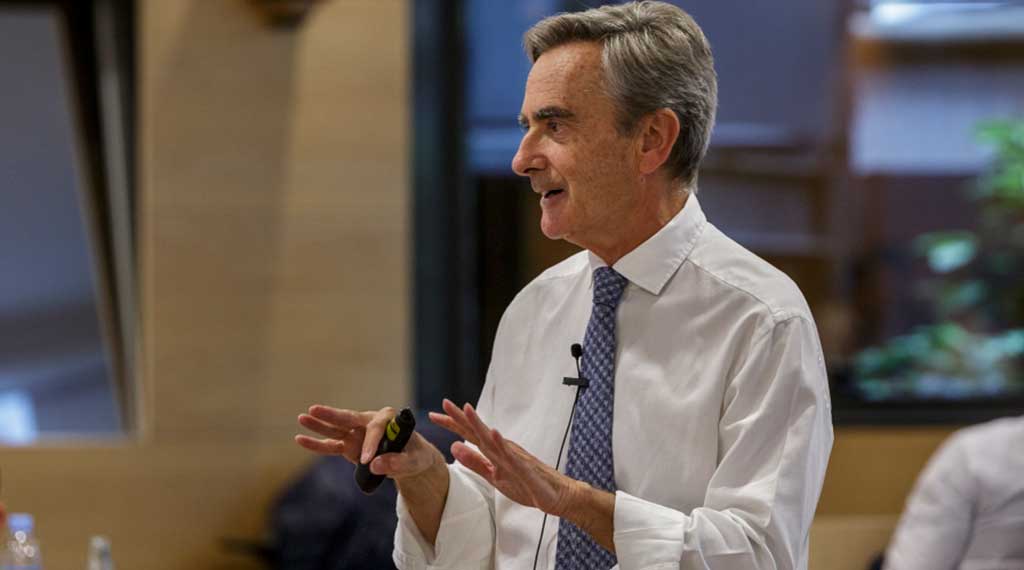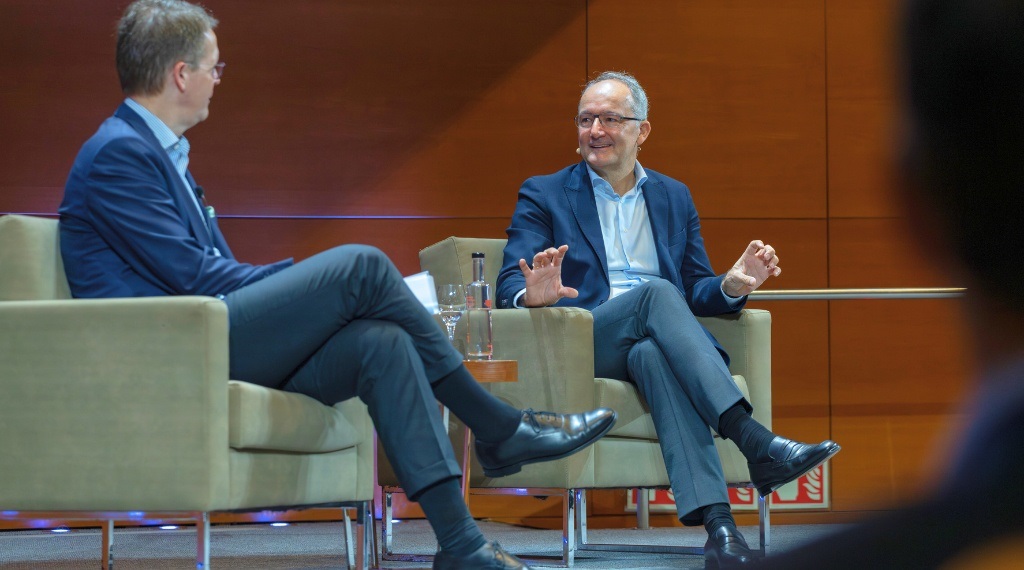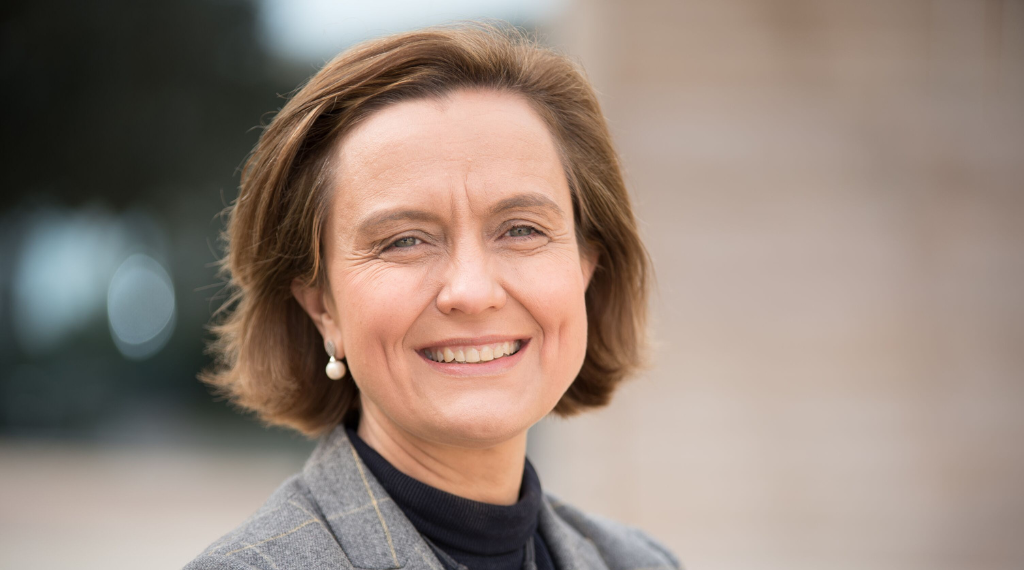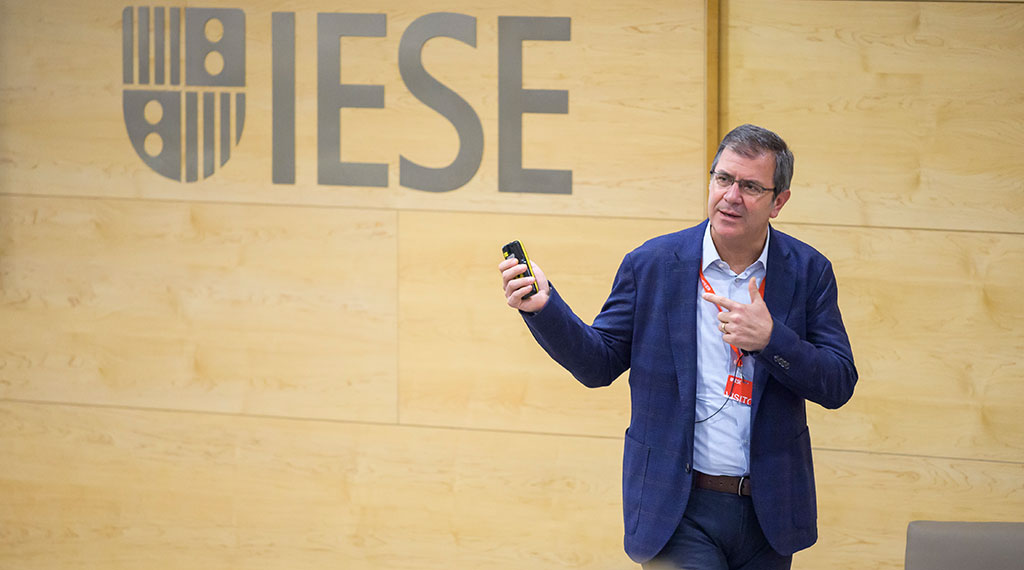Stories
Finding fulfillment throughout your life and career
International Executive Coaching Symposium looks at work-life equation at different ages
Alberto Ribera is academic director of IESE’s Executive Coaching Unit.
November 6, 2020

How do you arrive at the right mix of professional and personal achievements to find happiness and fulfillment, regardless of your age or career stage?
This was one of the questions raised during the 5th Annual International Executive Coaching Symposium, held this week under the theme of Ages of Life and Career Stages. The yearly event is organized by IESE’s Executive Coaching Unit, which is led by Prof. Alberto Ribera, its academic director, and Estíbalitz Ortiz, its executive director.
While there’s no easy answer to the question, a number of speakers, themselves at different ages and career stages, offered their vision:
Don’t approach work in a linear way.
Many millennials already have a non-linear approach to career, entering the workforce with little interest in advancing through traditional hierarchies. For mid-career professionals, a non-linear approach can mean taking on a new challenge they wouldn’t normally do, such as changing countries or sectors.
“Careers now are very fluid, even if you don’t want them to be,” said Marta Sánchez Serrano of Vodafone. “I think you create your own opportunities. And every time you take a decision you have to create other opportunities.”
For older people, non-linear career planning means doing what Harvard professor Arthur Brooks calls “shifting from innovation to instruction.” That involves drawing more on your crystalized intelligence – the sum of your accumulated knowledge and experience – and less on your fluid intelligence, which is the sort of complex problem-solving that may have made you successful earlier in life.
It’s worth taking the risks. “In my view risk taking is a very critical element of strong leadership,” said Adrian Koch of AK Consult. “Without calculated risk, a leader is never going to be an excellent leader in the long run.”
Find meaning at work.
Simply going to work is unlikely to leave you feeling fulfilled in the long run, the speakers said. Professor Guido Stein noted that what millennials value at work – beyond recognition and achievement — is work-life balance and leaving an impact. Purpose-driven companies are more important than ever.
Brooks also recommends doing something that not only gives you a sense of accomplishment at work, but also involves serving others. The sense that you are helping others, in whatever way that may be, will give you a greater sense of meaning at work.
Don’t put all of your deposits in your work account. Also put deposits in your faith account, your family account and your friendship account.
Arthur Brooks
Professor, Harvard University
Make conscious decisions.
Koch recommends scheduling regular career check-ups, the way you do health check-ups, to talk broadly about your career goals and also your personal situation. “A conscious discussion with someone can help,” Koch said. An executive coach can be particularly useful in this sort of discussion, he said.
And Serrano recommends thinking often about what your priorities are and whether you’re keeping them, and considering ways to find the balance between what you’re doing and what you’d like to be doing.
“In ages of life and career stages, what we’re really talking about is change,” said IESE’s Ribera. Make a conscious effort to understand what changes, what doesn’t change, what you want to change and what you don’t want to change.
But a life filled only with work, no matter how successful, probably won´t be enough to find happiness, they said:
Find meaning outside work.
For some, that meaning can come from faith. For others, it’s from pursuing activities outside the workplace that add greater meaning to your life.
Don’t go it alone.
Family and friendship – deep relationships in general – are key. Eghosa Oriaikhi Mabhena of Puma Energy recalled how, as she moved around in an increasingly successful international career, she developed an expansive global network of acquaintances. But what she wanted was the sorts of deep relationships that spanned a lifetime. “At the end of the day when we all look back, we’ll probably remember more the impact we’ve had on our families and loved ones than on our career,” Oriaikhi said.
“Don’t put all of your deposits in your work account. Also put deposits in your faith account, your family account and your friendship account,” Brooks said.
IESE has recently launched a Leadership Coaching Program, aimed at top executives from any sector who want to learn the coaching mindset to inspire and motivate their team, and at executive coaches who wish to amplify their impact on clients.


